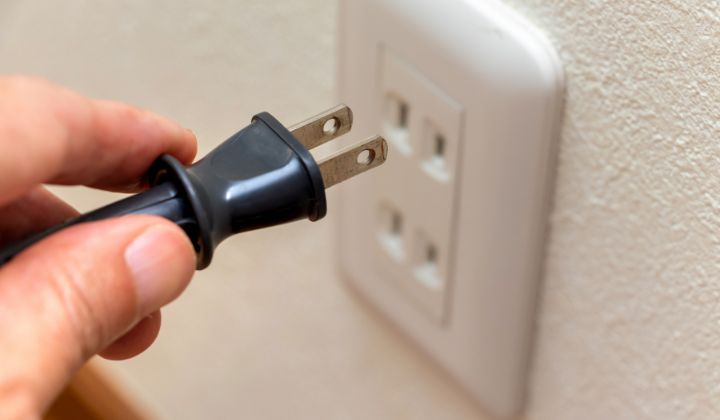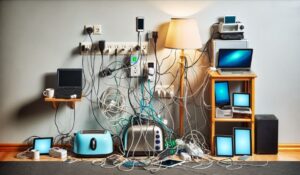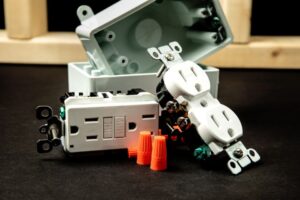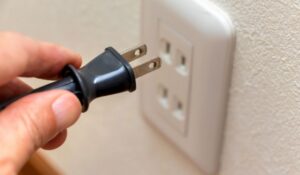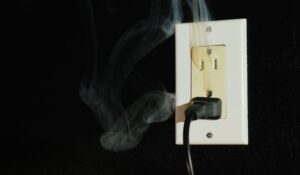In the realm of safety, few topics are as important as ensuring the safety of your electrical systems. One common concern that often arises is the potential danger associated with ungrounded outlets, especially in old homes. So, is using an ungrounded outlet dangerous?
Ungrounded outlets can be dangerous. They increase the risk of electrical shocks, fire hazards, and potential damage to appliances, as they lack the safety of proper grounding in an electrical system. Upgrading to grounded outlets or installing Ground Fault Circuit Interrupter (GFCI) outlets can mitigate these risks.
In this article, we’ll explore the fundamentals of electrical grounding, the potential dangers of ungrounded electricaloutlets, and what you can do to ensure the safety of your home.
Understanding electrical grounding
To understand the risks associated with ungrounded outlets, we first need to discuss concept of electrical grounding. Grounding is a safety feature designed to prevent electrical shock and fires.
In a properly grounded electrical system, a conductive path, usually connected to the Earth, provides a route for excess electrical current to dissipate safely. This helps protect appliances, devices, and, most importantly, the individuals using them.
What is an ungrounded outlet?
An ungrounded outlet is simply an electrical receptacle that lacks this connection to the ground (neutral) wire within the electrical wiring system. Unlike grounded outlets, which provide a path for excess electrical current to dissipate safely, ungrounded outlets do not have this safety feature.
Ungrounded outlets are most common in older homes or buildings, and are commonly paired with old electrical breaker boxes.
The absence of grounding increases the risk of electrical shocks, poses a higher fire hazard, and may result in damage to connected electronic devices.
How to tell if your outlets are grounded
Typically, a simple visual inspection will tell you if an outlet is grounded or not. A grounded outlet has three holes: two vertical slots and a round or U-shaped hole beneath. The third hole is the grounding port. If your outlet only has two vertical slots without the grounding port, it is ungrounded.
If you’re unsure, you can use an outlet tester, which is available at most hardware stores. This simple device has three lights that indicate whether the outlet is properly wired. A grounded outlet will show three lights, while an ungrounded one will show only two.
If you’re unsure, you can always consult a professional, who can remove the faceplate and inspect the receptacle.
The dangers of ungrounded outlets
Having ungrounded outlets in your home can pose significant risks:
Electrical shocks
Ungrounded outlets lack the safety net that grounding provides. In the event of a short circuit or malfunction, excess electricity may not have a proper path to dissipate, increasing the risk of electrical shock for anyone in contact with the faulty device.
Fire hazards
Without proper grounding, electrical currents may overload circuits and spark fires. Grounding helps prevent overheating and reduces the risk of electrical fires. Ungrounded outlets may contribute to an increased fire hazard, especially in older homes with outdated wiring.
Appliance damage
Many modern appliances are designed to be used with grounded outlets. Plugging these appliances into ungrounded outlets may lead to performance issues and, over time, damage to sensitive electronic components.
How to ensure electrical safety with ungrounded outlets
Upgrade to grounded outlets
If your home has ungrounded outlets, consider upgrading to grounded outlets. This may involve rewiring, so it’s advisable to consult with a qualified electrician to ensure a safe and compliant installation.
GFCI outlets
Install Ground Fault Circuit Interrupter (GFCI) outlets, especially in areas prone to moisture, such as kitchens and bathrooms. GFCIs provide an added layer of protection by quickly shutting off power if they detect a ground fault.
Regular inspections
Conduct regular inspections of your electrical system. Look for signs of wear, exposed wires, or any abnormalities. If you notice any issues, contact a licensed electrician to address them promptly.
Next steps
Ungrounded outlets pose significant risks to both individuals and property. Prioritizing electrical safety in your home and using the proper outlet type is important for preventing electrical shocks, fires, and damage to your valuable electronic devices.
By understanding the dangers of ungrounded outlets and taking proactive measures to address them, you can create a safer living environment for yourself and your loved ones.
If in doubt, please consult with a qualified electrician to ensure that your electrical system meets the latest safety standards.


